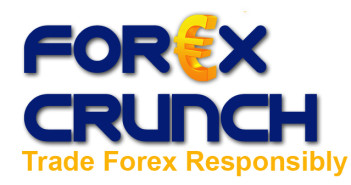The Irish deal boosts EUR/USD, as expected. But there are growing signs of deja-vu from last week – a strong start on high hopes and a fall to harsh reality soon afterwards. Update on the Irish deal, Spanish risks and the Euro’ s (temporary?) weekend gap.
As expected, the publication of the bailout package before the markets opened, sent EUR/USD jumping up with a bug weekend gap. The pair now trades at 1.3280, about 50 pips above Friday’s close. What’s in the deal?
The Irish people will fund 17.5 billion euros out of the total 85 billion out of pensions funds, endangering their future. The rest will come from the IMF and the EU, including non-Euro countries such a Britain and Sweden.
Britain, that just made severe cuts in its public spending, decided that austerity measures don’t apply for the British banks, highly exposed to Irish banks’ debt.
No haircuts will be enforced on debt holders – mostly German, French and British banks, holding debt of Irish banks.
It’s still too early to see if these EUR/USD gains will remain. On one hand, the fear of haircuts is gone, the interest rate that Ireland will pay is lower than expected – 5.8% instead of 6.7%, and a deal was finalized quickly.
On the other hand, it’s hard to see how this deal will prevent contagion, especially after Germany and France agreed that haircuts / defaults can begin in 2013.
EUR/USD is between the minor support line of 1.3267 and the minor resistance line of 1.3334. Stronger resistance appears at 1.3440. Further support is seen at 1.3, last week’s low, and stronger support at 1.3114.
For technical analysis and an outlook of events, see the Euro Dollar forecast and here’s a  EUR/USD Elliot Wave analysis sees deep low targets for the pair.
Spanish risks
In Spain’s rich region of Catalonia, fresh results from the elections show a landslide victory to opposition party CiU over the Socialist party, which ruled the region and rules the country.
This is warning sign for Spain’s prime minister, Zapatero, who is losing popularity as the country is unable to recover from the financial crisis. The people of Catalonia clearly voted for autonomous tax collection, which topped the elections’ agenda.
This result also weighs on Spain and the Euro, even though it was expected.
We’ll see the really important reaction to the Irish deal and Catalan elections when Spanish bonds begin trading in the European morning. Yields on Spanish ten years notes reached record highs of 5.25% on Friday. A significant drop under 5% is necessary to keep the Euro running.
Otherwise, it’ll be a re-run of last week – the Irish aid request sent the Euro higher, but when difficulties were seen in Ireland and bond yields of troubled countries rose, the Euro plunged.
Want to see what other traders are doing in real accounts? Check out Currensee. It’s free..



